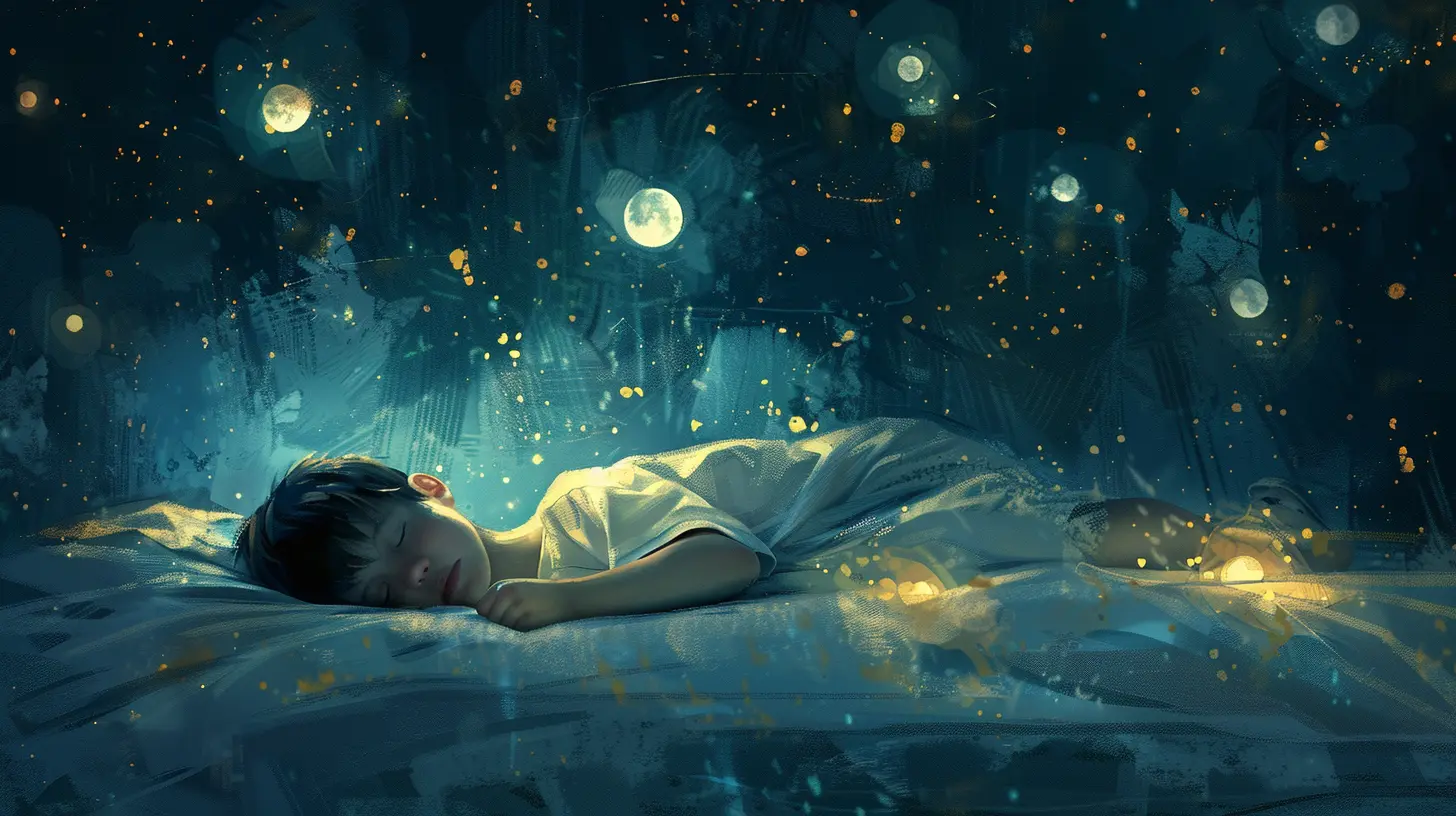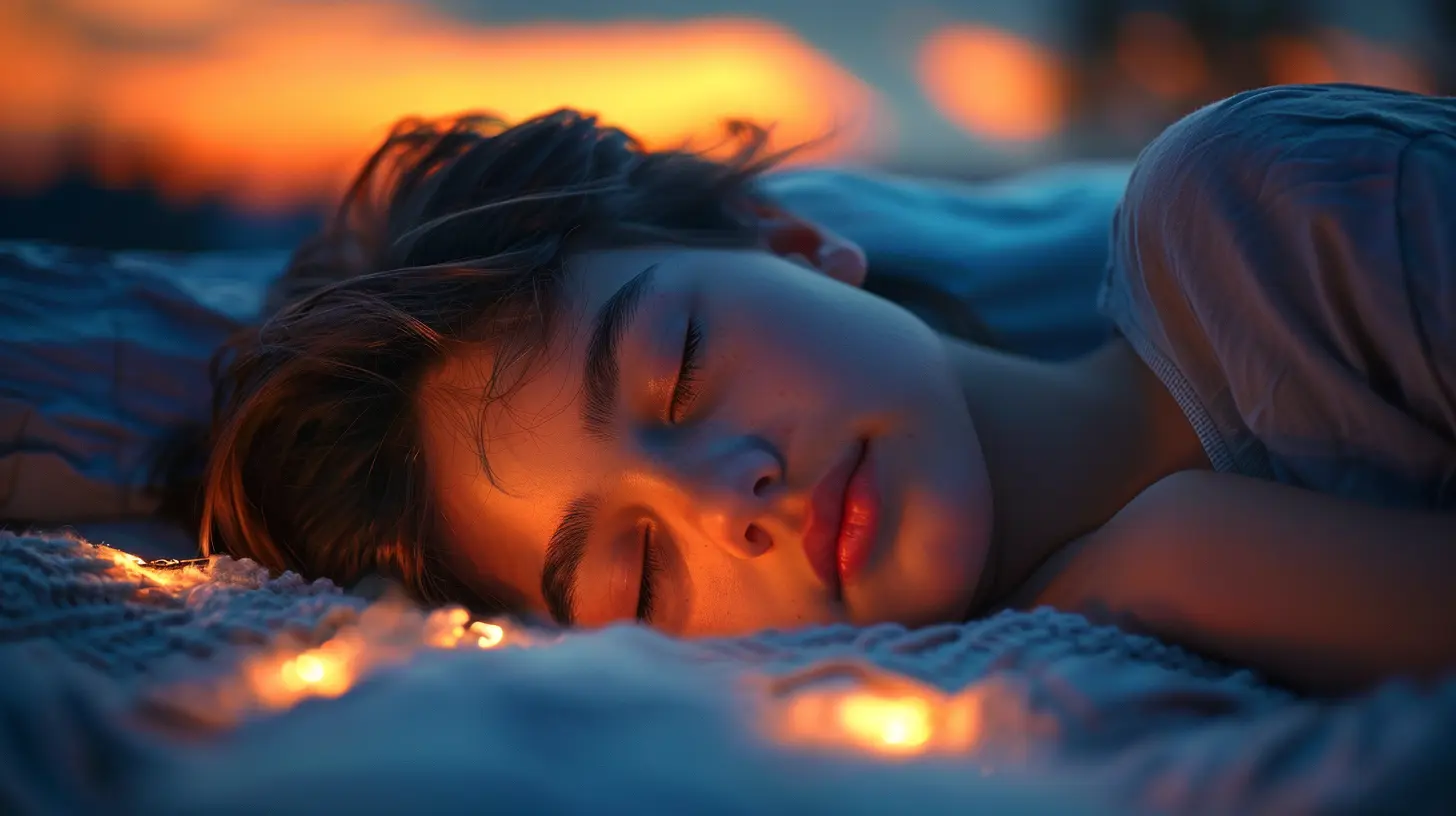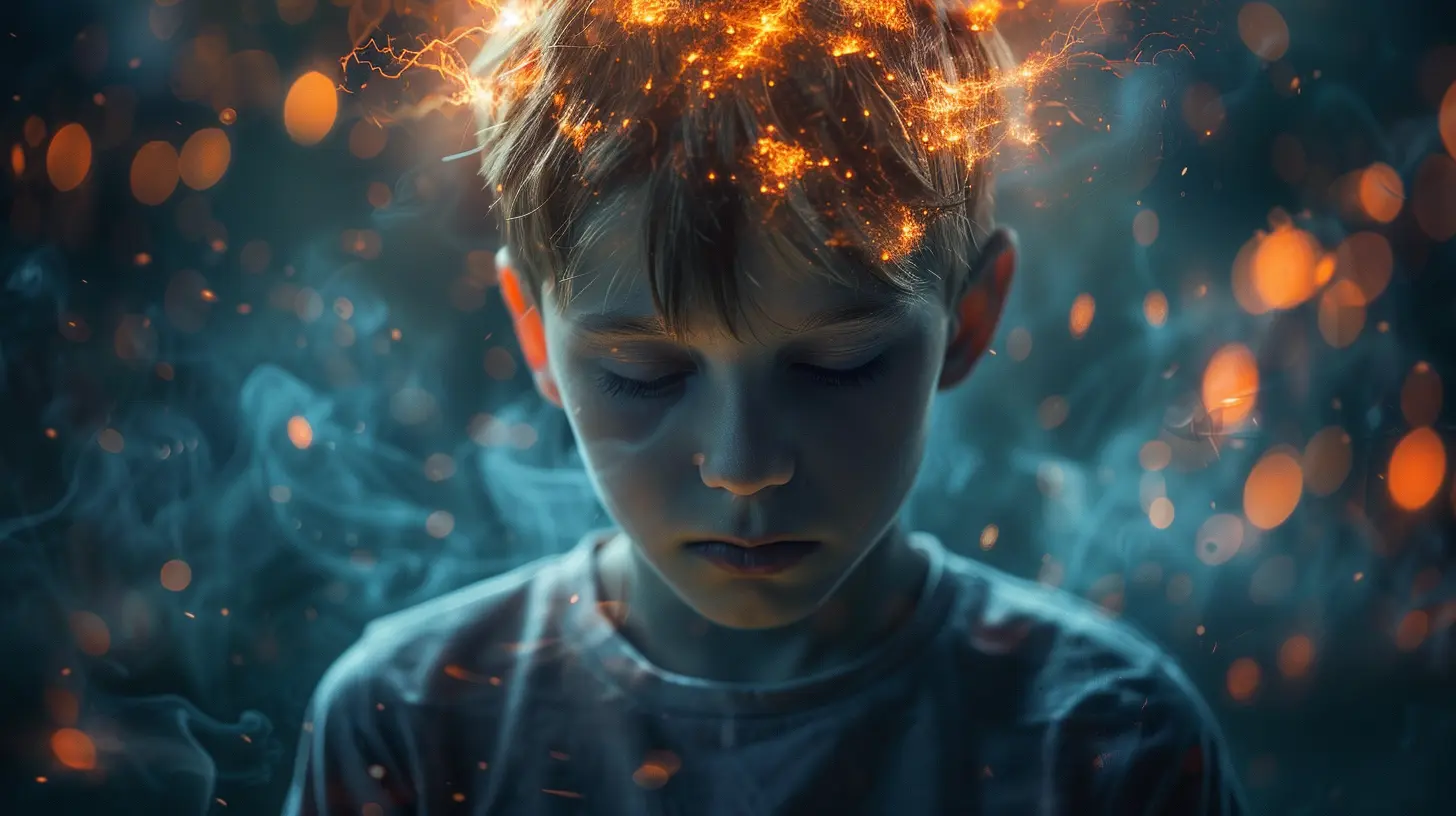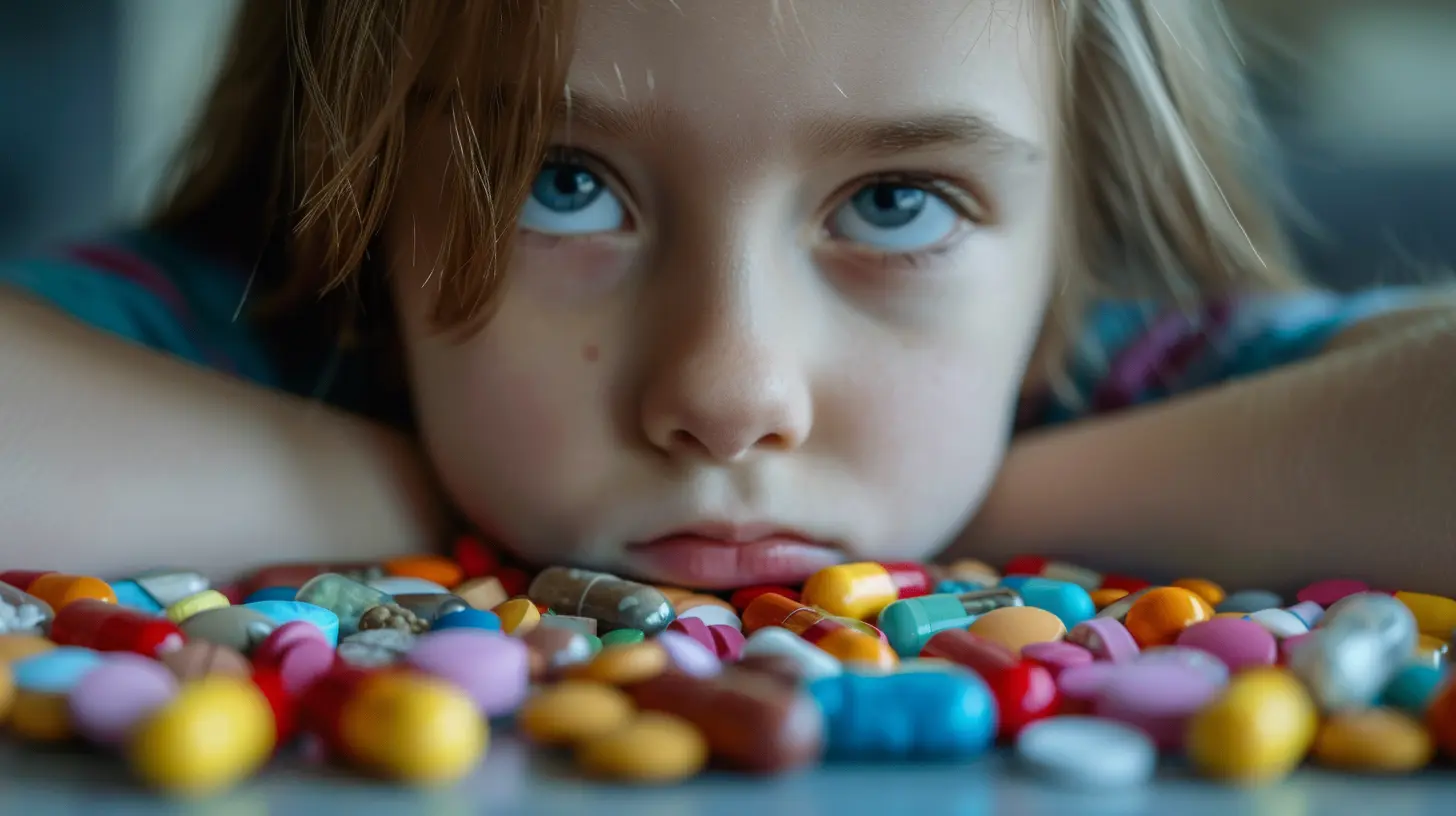The Connection Between Sleep Disorders and Psychological Health in Kids
26 October 2025
Have you ever tried functioning on a few hours of sleep? You’re sluggish, grumpy, can’t think straight—and that's just one night. Now imagine a child going through that consistently. Not only does it make mornings a nightmare, but it can also take a serious toll on their mental and emotional well-being. If your kid has been having trouble sleeping, whether it's falling asleep, staying asleep, or battling nightmares, there might be more going on beneath the surface.
In this article, we’re going to take a deep dive into how sleep disorders are connected to psychological health in children. From anxiety and depression to behavioral issues and developmental delays, lack of sleep doesn’t just cause crankiness—it can shape a child’s emotional and mental health long-term.
Let’s pull back the covers and see what’s really going on.
Why Sleep Matters So Much for Kids
Sleep isn't just about rest—it’s essential for growth, brain development, and emotional regulation. Think of sleep like the “save” button on your kid’s brain. During the night, the brain works like a busy office—organizing memories, rewiring connections, and scrubbing out unnecessary junk.How Much Sleep Do Kids Really Need?
The National Sleep Foundation recommends:- Infants (4–12 months): 12–16 hours (including naps)
- Toddlers (1–2 years): 11–14 hours
- Preschoolers (3–5 years): 10–13 hours
- School-aged children (6–13 years): 9–12 hours
- Teenagers (14–17 years): 8–10 hours
Now, compare that to how much sleep your child is actually getting. If there’s a gap, you’re not alone.
Common Sleep Disorders in Children
Children can experience several types of sleep disturbances. Some are more obvious (like insomnia), while others fly under the radar.1. Insomnia
This is when a child has difficulty falling asleep or staying asleep. They might toss and turn for hours or wake up several times during the night.2. Sleep Apnea
Obstructive Sleep Apnea (OSA) is when a child’s breathing stops and starts during sleep. It often goes unnoticed unless the child snores loudly or gasps for air.3. Night Terrors and Nightmares
While nightmares are common and often fade with comfort, night terrors are more intense. A child may scream, thrash, or look terrified but won’t be fully awake or responsive.4. Restless Leg Syndrome (RLS)
This involves an uncontrollable urge to move the legs, typically in the evening, making it hard for a child to fall asleep.5. Delayed Sleep Phase Syndrome
This is common in teenagers, where the child’s internal clock is delayed, causing them to stay up late and struggle to wake up in the morning.
The Psychological Impact of Poor Sleep in Kids
Alright, here’s where it gets real. Poor sleep doesn’t just lead to yawning. It’s closely tied with a wide range of mental health problems in kids—including anxiety, depression, ADHD, emotional dysregulation, and behavioral challenges.1. Anxiety and Depression
Lack of sleep and mental health issues are a two-way street. Poor sleep can trigger or worsen anxiety and depression, while anxious thoughts often prevent restful sleep. Kids with anxiety may struggle to fall asleep due to racing thoughts or fears. Those with depression might oversleep or have fragmented sleep.It’s a vicious cycle—and very common.
2. Behavioral Problems
If your child acts out, throws tantrums, or seems easily irritated, sleep might be the missing puzzle piece. Sleep-deprived kids often mimic the symptoms of ADHD—hyperactivity, impulsivity, and inattention.Makes sense, right? Even adults get cranky when tired. Now imagine a young brain still learning how to regulate emotions.
3. Cognitive Impairment and Learning Difficulties
Sleep is when the brain stores new information, handles problem-solving, and strengthens concentration. Without enough rest, your child's school performance may drop. They might struggle with memory, focus, or creativity in ways that look like academic disinterest—but it's really just exhaustion.4. Social Struggles
Sleep-deprived children are often less emotionally responsive. That means they may misread social cues, overreact, or withdraw altogether. Over time, this can significantly impact friendships and peer relationships.5. Developmental Delays
For younger kids, sleep disruptions can impact physical and emotional development. Slow language acquisition, low emotional resilience, and delayed motor skills may all link back to inadequate sleep.
What Causes Sleep Problems in Kids?
Sleep disorders aren’t always random. Several factors can contribute, and identifying the "why" can help you figure out the "how" when it comes to treatment.1. Stress and Anxiety
Kids worry too—about school, bullies, separation from parents, or even dark closets. These underlying concerns can fuel nighttime anxiety and sleep resistance.2. Screen Time Before Bed
TVs, tablets, and phones emit blue light that tricks the brain into staying alert. Not to mention, content that’s overstimulating (like fast-paced cartoons) can make winding down nearly impossible.3. Poor Sleep Hygiene
Irregular bedtime schedules, sugar before sleep, or overactive evenings can all disrupt the natural sleep rhythm.4. Family Issues or Trauma
Divorce, death in the family, or other significant changes can cause emotional upheaval, making it difficult for children to rest peacefully.5. Medical Conditions
Asthma, allergies, reflux, and even some medications can interfere with sleep quality. Always rule out medical causes first with your pediatrician.Recognizing the Warning Signs
Not every kid will tell you they're having trouble sleeping. Instead, look out for:- Mood swings or irritability
- Sudden drop in school performance
- Difficulty waking in the morning
- Frequent night awakenings
- Loud snoring or gasping
- Hyperactivity during the day
- Complaints of being tired or bored all the time
If these signs persist, it’s time to dig deeper.
How You Can Help: Steps Parents Can Take
You don’t need to be a sleep expert to support your child’s sleep health. Small changes can make a big difference.1. Establish a Consistent Bedtime Routine
Kids thrive on routine. A calming ritual—like bath, storytime, and dimmed lights—signals to the brain that it’s time to wind down.2. Limit Screen Time
Try to shut off screens at least an hour before bed. Replace TV time with calming activities like puzzle games, drawing, or reading.3. Create a Sleep-Friendly Environment
Make the bedroom cool, quiet, and dark. Add blackout curtains or a white noise machine if needed. Also, keep toys and distractions out of the bed.4. Monitor Diet and Activity
Avoid sugary snacks and caffeine in the evening. Encourage physical activity during the day, which can promote deeper sleep.5. Talk About Their Worries
Sometimes, just having a chat about what’s on their mind before bed can help release some of the mental tension that keeps them awake.6. Consider Professional Help
If sleep disturbances are chronic or affecting daily life, talk to a pediatrician or child psychologist. Sometimes, intervention with Cognitive Behavioral Therapy for Insomnia (CBT-I) or a sleep study might be necessary.The Role of Mental Health Professionals
Mental health professionals—like child psychologists or therapists—play a crucial role in treating underlying psychological causes of sleep issues. By addressing the root problems such as anxiety, trauma, or depression, therapists can help break the cycle of poor sleep and emotional distress.Sleep disorders and mental health often go hand-in-hand, and untangling them requires a team approach. Pediatricians, therapists, and sleep specialists may need to work together to get your child back on track.
When to Seek Help Immediately
Sleep issues aren’t always urgent—but some red flags mean you should act right away:- Your child stops breathing or chokes during sleep
- Nighttime behaviors become violent
- Your child is excessively sleepy during the day
- You observe signs of depression or self-harm
- Sleep problems persist beyond a few weeks
Remember, you’re not alone—and help is available.
Wrapping It Up
Sleep is like emotional fuel for kids. When they don’t get enough, everything from their mood to their mental development can go off course. The good news? You’ve got more control than you think. By recognizing the signs early, improving sleep habits, and seeking help when needed, you can protect your child’s psychological health and help them wake up to brighter days.So, the next time your child seems off-balance, don’t just look at their behavior—take a peek at their bedtime routine. It might just be the key to a happier, healthier mind.
all images in this post were generated using AI tools
Category:
Psychological Disorders In ChildAuthor:

Eliana Burton
Discussion
rate this article
1 comments
Darby Elliott
This article highlights a critical yet often overlooked connection. Understanding the impact of sleep disorders on children’s psychological health is essential for effective intervention. Prioritizing sleep not only enhances well-being but also supports emotional and cognitive development. Let’s make sleep health a priority!
October 31, 2025 at 5:23 PM

Eliana Burton
Thank you for your insightful comment! I completely agree—prioritizing sleep is vital for children's overall well-being and development.


